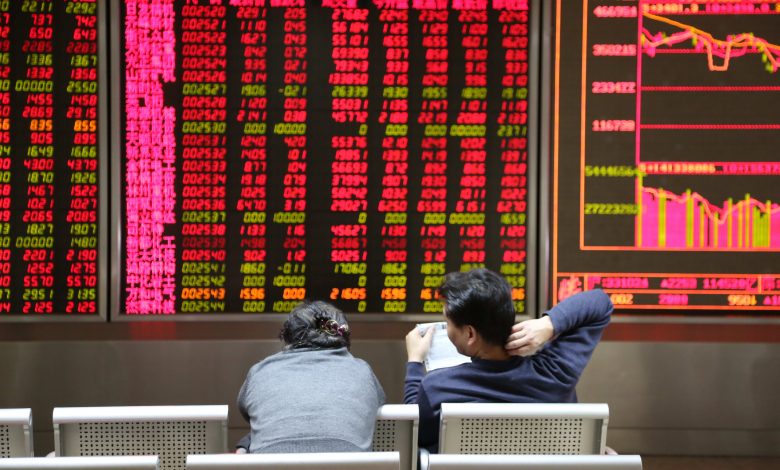Emerging market central banks face dilemma as oil plunges: Analyst

[ad_1]
Investors observe stock market at an exchange hall on January 6, 2016 in Beijing, China.
VCG | Getty Images
The plunge in oil prices has hit many emerging market currencies — and their central banks now face a “policy dilemma” of how to support their respective economies amid an expected slowdown in growth, an analyst said on Monday.
“Central banks across emerging markets are, on the one hand, facing huge sell-offs in their currencies; and on the other hand, a slowdown in growth,” Cedric Chehab, head of country risk and global strategy at Fitch Solutions, told CNBC’s “Street Signs Asia.”
“So what do they do? Do they cut interest rates to stimulate growth or do they raise interest rates to support their currencies? I think a lot of central banks are going to be squeezed by this policy dilemma now,” he added.
Oil prices dived to around $30 per barrel on Monday after the Organization of the Petroleum Exporting Countries, or OPEC, failed last week to strike a deal with its allies — including Russia — to cut production further.
Following that, Saudi Arabia — the world’s largest oil exporter — slashed its prices for April and plans to increase production above 10 million barrel per day next month, reported Reuters. The kingdom currently pumps 9.7 million barrels per day, but has the capacity to ramp up to 12.5 million barrels per day.
Those developments in the oil markets hurt currencies of emerging economies with huge exposure to oil, such as Mexico and Russia, as well as those with “twin” current account and fiscal deficits, such as Indonesia, according to Chehab.
On Monday, the U.S. dollar advanced more than 6% against the Russian ruble, over 4% against the Mexican peso, and close to 1% against the Indonesian rupiah.
‘Double whammy’ in oil markets
The weakness in oil markets and emerging markets’ currencies have come at a time when the global economy is feeling the pinch from the spread of a new coronavirus disease, or COVID-19.
Several central banks have cut interest rates to soften the economic hit from the coronavirus, with more expected to follow suit. The virus outbreak has also hurt demand for oil.
That hit to oil demand, coupled with an expected increase in supply, is dealing a “double whammy” to oil markets, said Matt Smith, director of commodity research at ClipperData.
“Going forward, it doesn’t seem as if we’re going to get much better news unless this (price fall) actually draws Russia back or it gets Saudi back to … the negotiating table,” he told CNBC’s “Squawk Box Asia” on Monday.
Some analysts added that the lower oil prices could spur oil importers such as China and India to stock up. But Vishnu Varathan, head of economics and strategy at Mizuho, warned that given all the challenges facing the global economy now, lower oil prices is “a far cry from a panacea” for anyone.
Varathan cited India as an example. He pointed out that a fall in oil prices would typically lead to a “high-performing rupee and a lot of relief in the equity markets,” but the same trend wouldn’t happen this time when “everyone is concerned about a demand shock.”
“That’s going to be bad all around,” he told CNBC’s “Squawk Box Asia” on Monday.
The U.S. dollar was roughly flat against the Indian rupee. Meanwhile, Indian stock indexes Sensex and Nifty 50 fell close to 4% in early Monday trade.
Source link






